Pidgeon Pagonis is an intersex artist and activist who has worked for almost a decade researching, advocating and educating a wide range of audiences about intersex issues and rights, and the movement for bodily autonomy and justice.
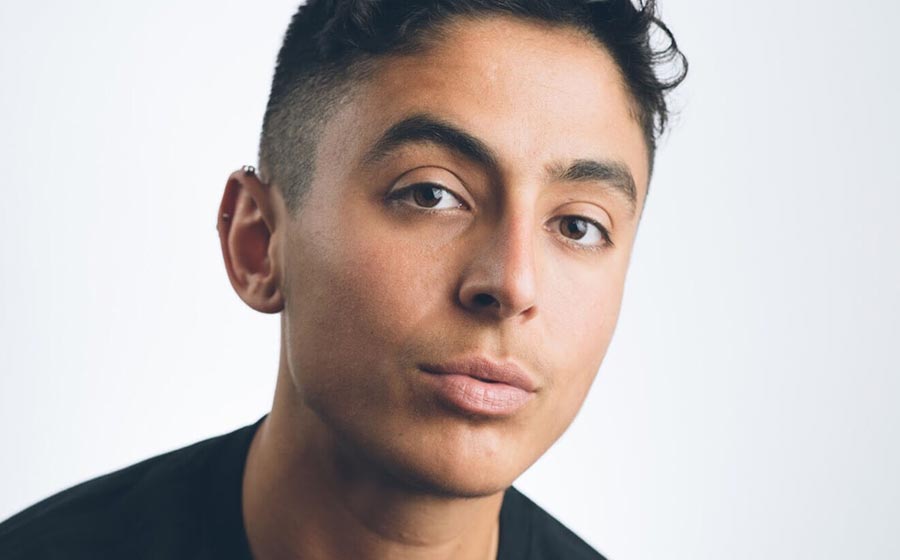
Pidgeon Pagonis is an intersex artist and activist who has worked for almost a decade researching, advocating and educating a wide range of audiences about intersex issues and rights, and the movement for bodily autonomy and justice. In 2013, they began work on their documentary, The Son I Never Had, which gives an inside look at one intersex person’s experience. The film weaves narration, recorded conversations, and medical records with photos, video and animation, in the hopes of compelling viewers to take action against the human rights violations incurred by intersex people.
Oii-Chinese was established in 2008 to provide Chinese-speaking intersex people information created by intersex people and to bring intersex people together for peer support.
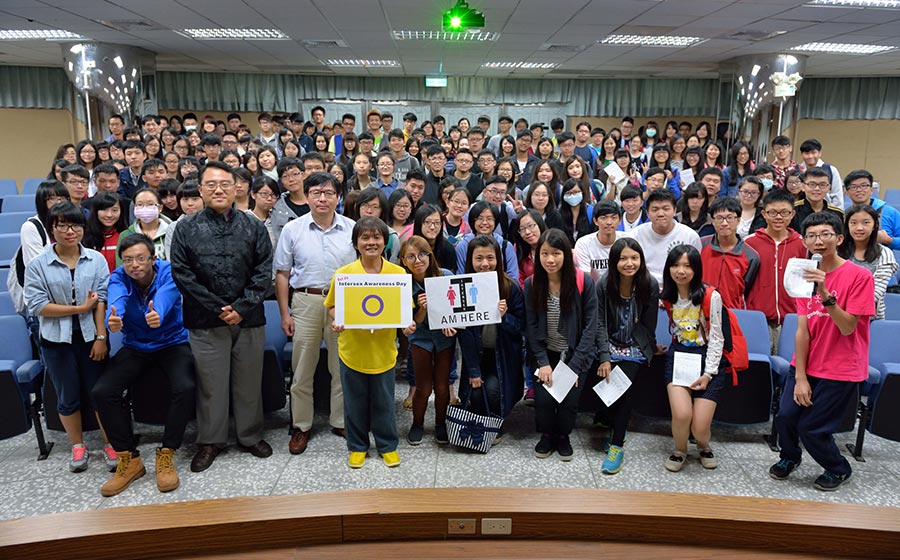
Oii–Chinese was established in 2008 to provide Chinese–speaking intersex people information created by intersex people and to bring intersex people together for peer support. They provide support for Chinese–speaking intersex people through an online group, especially with the pandemic and its impact on mental health. They also wrote an article as part of the calling on “advocate, protect and ensure the LGBTI rights to be respected” from the UN human rights experts for the CEAW review invited to Taiwan. They produced a 20,000 words document about intersex human rights issues that was then included in the curriculum for civil servants in Taiwan. They then gave a lecture on the topic to civil servants at a national level as well as high school teachers. Check out a video interview with Oii-Chinese’s Founder Hiker Chiu: Hiker was also featured in our 2016 Intersex Awareness Day video:
OII Germany was founded in 2008 to work on ending non-consensual, medically unnecessary and cosmetic interventions forced on intersex children and adults, and to ensure human rights for intersex persons, such as bodily integrity and self-determination.

OII Deutschland was founded in 2008 and is now starting to build a more sustainable structure with its first part–time hirings. They were strongly involved in advocating for the new German government draft legal ban of intersex surgeries, even though the result is underwhelming, due to the influence of patient/parents–oriented groups and medical gate–keepers. Beyond this advocacy work, they also engage in awareness–raising through trainings, such as workshops for teachers on intersex pupils, or workshops for pedagogues and professionals. They also participated in a conference from the Federal Ministry for Family Affairs, Senior Citizens, Women and Youth to inform representatives of German welfare organisations about intersex human rights, as well as a work with the Robert Koch Institut to publish an article on the health of LGBTI people. They are also working with the Institute of Foreign Affairs.
OII Europe was founded in 2012, during the Second International Intersex Forum in Stockholm, to ensure the further adoption of Human Rights for intersex people all over Europe.
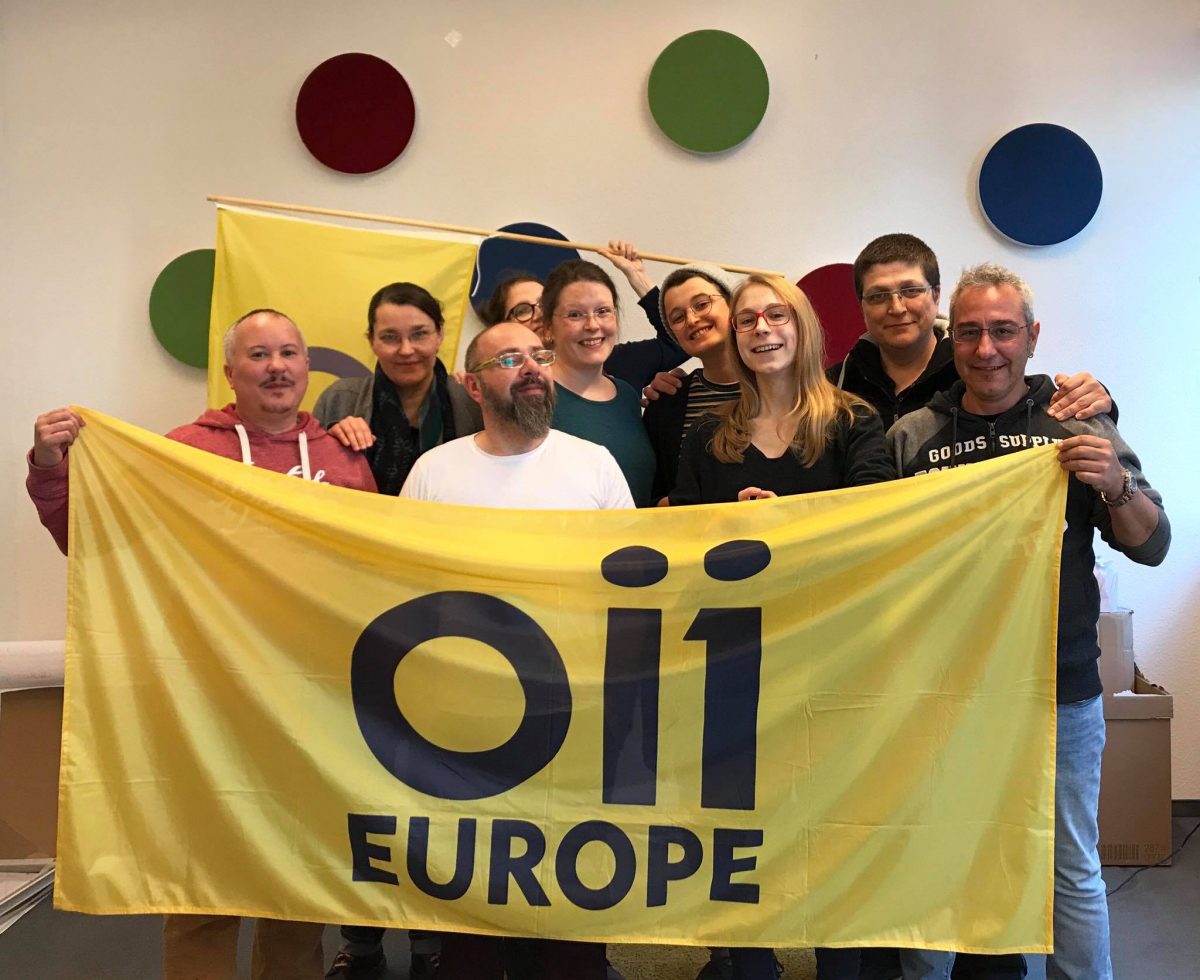
OII Europe was founded in 2012, during the Second International Intersex Forum in Stockholm, to ensure the further adoption of Human Rights for intersex people all over Europe. They are building a sustainable organization with an increase in staff hours, which allowed them to organize the 3rd European Intersex Community Event & Conference in September 2019 in Zagreb, with 68 participants -the largest human rights based gathering of intersex people globally to this date. The event was also an opportunity for a 2-day study visit to Ljubljana, Slovenia, where OII Europe Steering Board Members and Staff met with law and policy makers, students and NGOs and gave TV interviews. This visit was a big step towards increasing the visibility of intersex issues in the Balkan region. In 2019 they also published an illustrated testimonial book #MyIntersexStory –Personal accounts by intersex people living in Europe. In 2020 they started a project on Intersex Refugees and Asylum Seekers. They are using social media and infographics to communicate on surveys and findings, and they continue their work of translating their brochures into many European languages. During covid-19 they organize a number of online community events to help keeping up the morale of the European intersex community -such as weekly virtual campfire, where with talks, games, and movies; or daily check-ins on the main community chat and other forms of outreach.
Check out our 2016 Intersex Awareness Day video, featuring OII Europe Co-Chair Miriam van der Have:
Intersex Human Rights Australia is a national body by and for people with intersex variations.
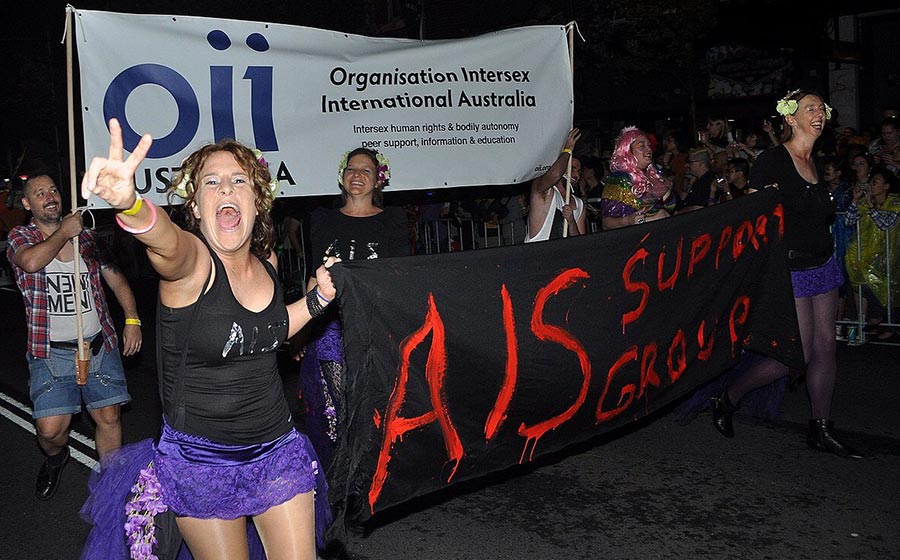
Intersex Human Rights Australia (formerly OII Australia) was formed in 2009. They are deeply committed to regional and international intersex networks. Their advocacy work includes a shadow report to the UN Committee on the Rights of Persons with Disabilities, a formal submission to the UN Office of the High Commissioner for Human Rights on the elimination of discrimination against women and girls in sport, and a side event “Intersex rights at the Human Rights Council”, for the 44th session of the Human Rights Council that was receiving and discussing the UN High Commissioner for Human Rights report on the “Intersection of race and gender discrimination in sport”. IHRA also presented a formal submission to the New South Wales Parliament’s Joint Select Committee inquiry into the Anti–Discrimination Amendment (Religious Freedoms and Equality) Bill 2020 about intersex and religion.
They engage with medical students and students of a range of other health disciplines, clinical institutions and associations, with training, screenings and debates.
One example of their community work is Family day, which was for intersex people and our families, including parents of children with intersex variations. During the covid–19 lockdown, they organized online meetings each Tuesday and Thursday lunchtime.
OII Francophonie’s history goes back to 2003, when it was founded as the ‘original OII,’ based in Quebec and Paris, from where the French name Organisation Intersex International derived.
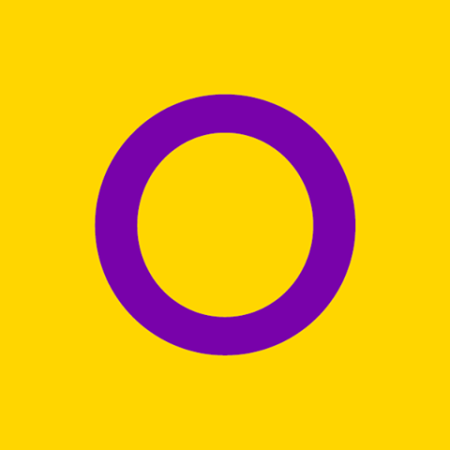
OII Francophonie’s history goes back to 2003, when it was founded as the ‘original OII,’ based in Quebec and Paris, from where the French name Organisation Intersex International derived. OII Francophonie’s mission is to work towards the right to self-determination and the depathologization of intersex people, opposing the medicalized treatments that intersex children are subjected to. They also work to give voice to French-speaking intersex people and to raise awareness about intersex people’s experiences by organizing meetings and publications that include contributions from intersex scholars, activists and artists. Describing themselves as a feminist collective who does intersectional work, OII Francophonie supports intersex people throughout the French-speaking world through a ‘network of care’ that aims to work with respectful doctors. The organization is made up of volunteer members based in France, Canada, Belgium, Luxembourg and the Netherlands, who are connected with other international intersex activists and organizations. OII-Francophonie hosted a summer school in Paris in 2006, with representatives from Canada, France, Belgium and the UK. They have been working with the Douarnenez Film Festival (France) since 2012 (film festival about minorities), and in June 2015, the Film Festival’s focus was on intersex visibility and included an international ‘residence’ for intersex activists. They are now working to strengthen the network and to develop organizational resources for French-speaking intersex organizations.
Iranti-Org formed in 2012 to help local and regional lesbian, trans, intersex and gender non-conforming (LTIGNC) movements in South Africa and across the continent use media as a platform for mobilization and shifting public dialogue.
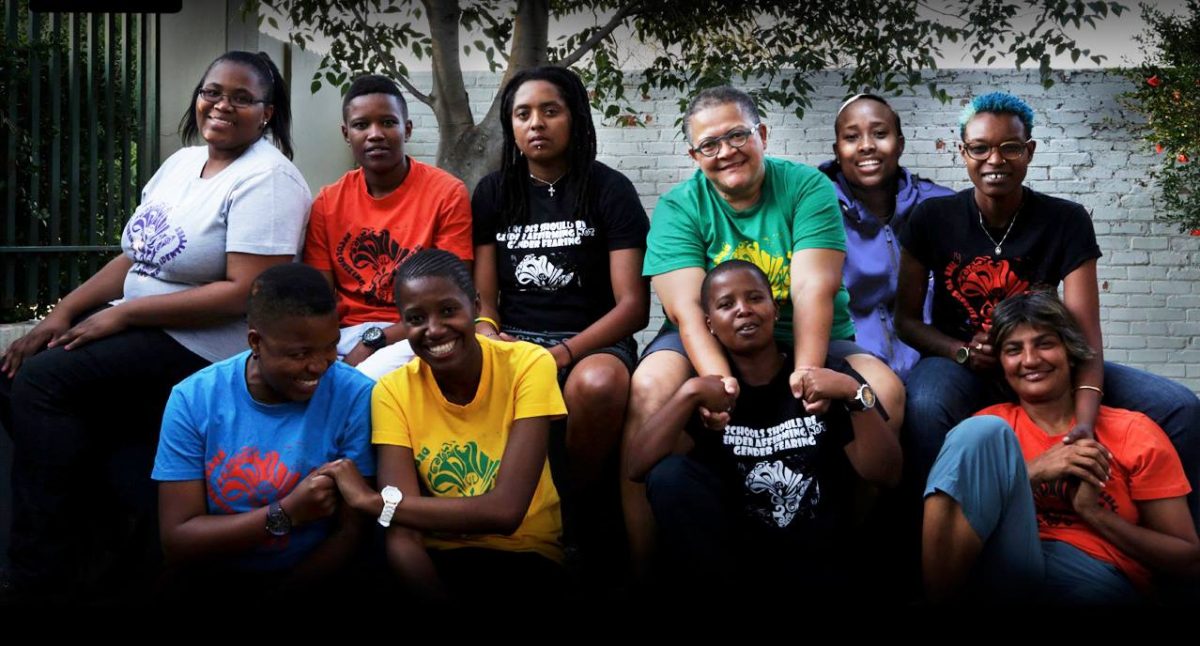
Iranti-Org formed in 2012 to help local and regional lesbian, trans, intersex and gender non-conforming (LTIGNC) movements in South Africa and across the continent use media as a platform for mobilization and shifting public dialogue. They support organizations to document human rights violations and produce evidence-based materials, and they also support cultural production to change attitudes about sexual orientation, gender identity and gender expression. Iranti-Org does this work to address the poor media capacity of LTIGNC groups, most of which don’t have media and documentation equipment or training in how to work with media; digital security is also a pressing need. In an exciting development, they recently launched an LBTIGNC Media Makers Network that supports activists across Southern Africa to produce their own media. In South Africa, Iranti-Org’s own media production and reporting plays a key role in strengthening the national LGBTQ movement. In collaboration with LGBTQ community groups across the country, they investigate hate crimes, use their reporting to hold the state accountable for addressing violence, and document LGBTQ mobilization.
The Intersex Day Project promotes human rights actions for Intersex Awareness Day (26 October) and Intersex Day of Solidarity (8 November), and also documents and shares the histories of the intersex movement.
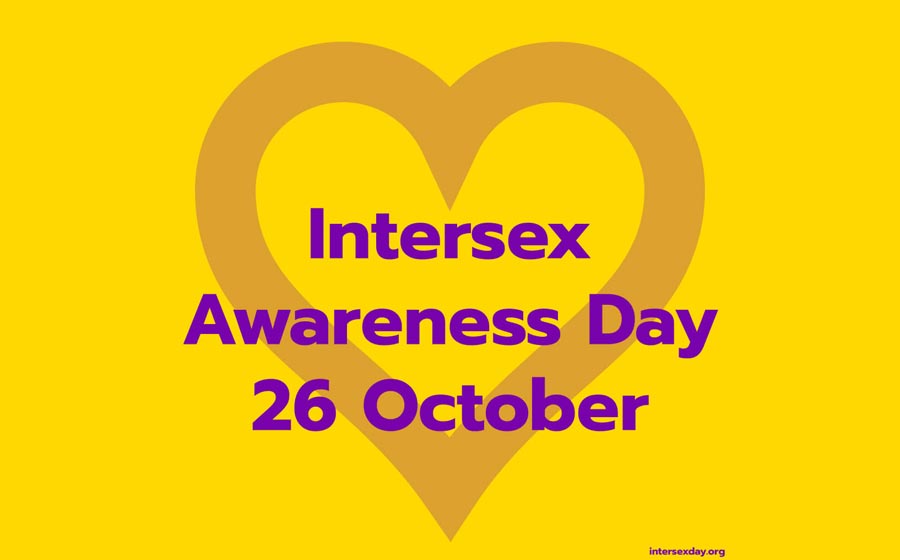
The Intersex Day Project promotes human rights actions for Intersex Awareness Day (26 October) and Intersex Day of Solidarity (8 November), and also documents and shares the histories of the intersex movement. The Intersex Day Project is bilingual, and it was established in 2015 by Morgan Carpenter (Australia), with support from Laura Inter (Mexico). The project gratefully acknowledge the important contribution of Betsy Driver and Emi Koyama (US) in founding Intersex Awareness Day in 2004, and honours the vital contribution of Morgan Holmes, Max Beck and friends, who took part in the event, in Boston in 1996, that is marked by Intersex Awareness Day.
Genres Pluriels was founded in 2007 to increase the visibility of trans*, intersex and gender fluid individuals and promote the rights of physical integrity and self-determination.
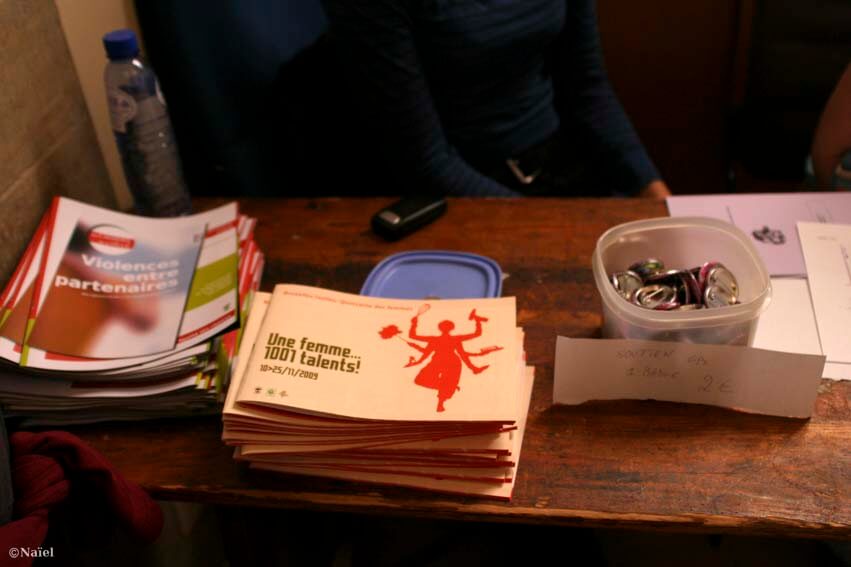
Genres Pluriels was founded in 2007 to increase the visibility of trans*, intersex and gender fluid individuals and promote the rights of physical integrity and self-determination. The organization raises awareness through media engagement, workshops and public activities, and through high schools and universities. Its interventions at the European Parliament/Council of Europe and in Belgian ministries aim to promote respect for the human rights of trans and intersex people. Genres Pluriels also provides psychological support to intersex people individually and through support groups. Genres Pluriels is increasing its focus on intersex issues by providing information in Belgium’s three official languages on its website, creating brochures to distribute to maternity wards in hospitals, holding public events on intersex issues, and producing a short film about the lived realities of intersex people.
Founded in 2001, Geten was the first organization in Serbia to acknowledge and base its work primarily on gender identity and expression.
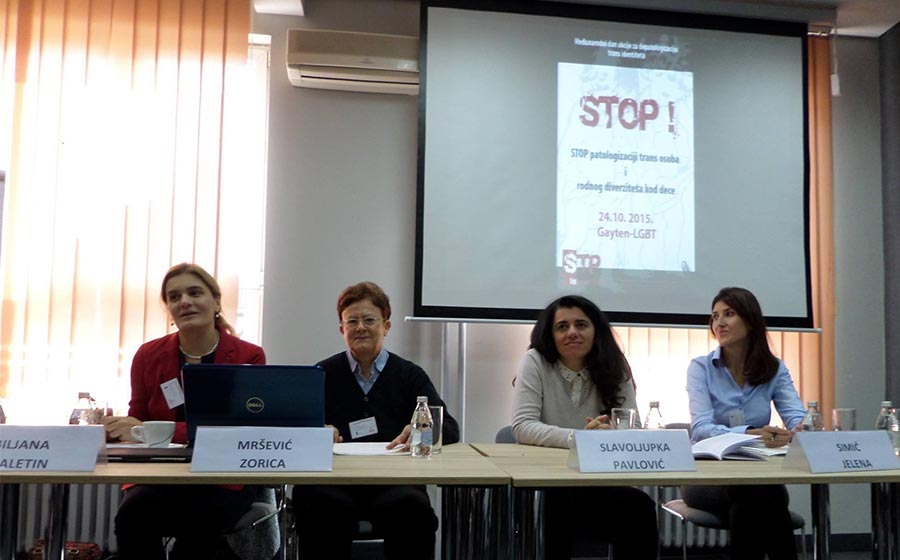
Founded in 2001, Geten (formerly Gayten-LGBT) was the first organization in Serbia to acknowledge and base its work primarily on gender identity and expression. Its mission is to contribute to removing all forms of violence and discrimination toward LGBTIQ persons. Geten’s advocacy contributed to the adoption by the Serbian Parliament of amendments to the law on healthcare, enabling body modification procedures for trans people to be covered by health insurance.
In addition to advocacy, Geten builds and empowers trans, intersex and queer communities through support groups, an LGBT SOS help line, culture and arts, education, and networking. Kris Randjelovic, coordinator of Geten’s trans and intersex section, identifies as intersex and trans, and led the call to form Geten’s intersex support group two years ago. Geten is conducting qualitative research on intersex issues, and translating and publishing information to aid in the education of medical professionals, intersex people and their families.
Check out our 2018 International Trans Day of Visibility video featuring an interview with Geten-LGBT’s Intersex Section Coordinator Kristian Randjelovic:
Kristian was also featured in our 2016 Intersex Awareness Day video:











